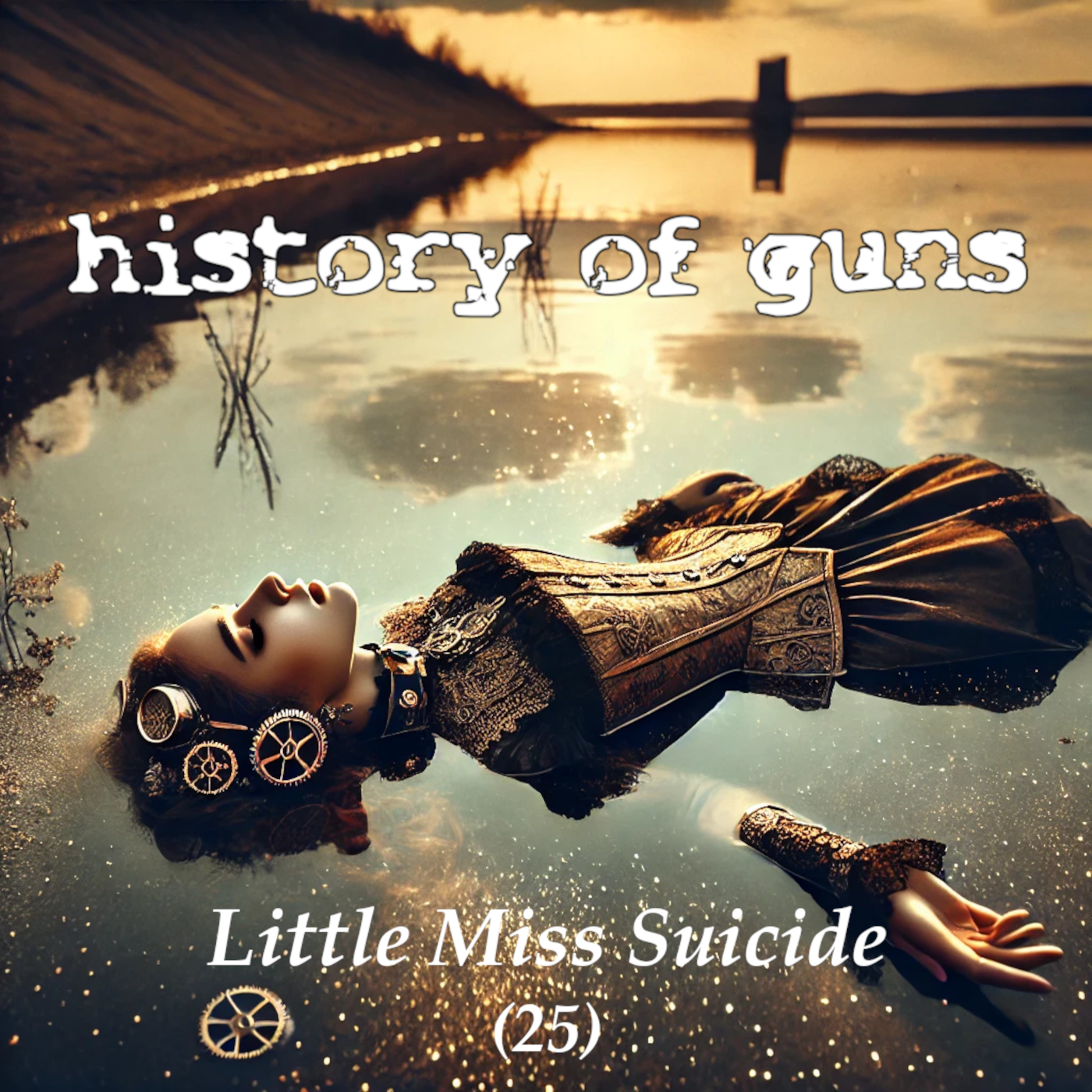As History Of Guns marks the 25th anniversary of their debut single, they revisit one of their most striking and controversial tracks, ‘Little Miss Suicide (25)’, with a fresh mix and modern production techniques. Originally written in 1998, this goth-industrial-meets-darkwave-pop song was ahead of its time, blending bleak, thought-provoking lyrics with an ironically uplifting chorus. Now, with Max Rael leading the new production using Cubase, the band breathes new life into a track that remains as powerful, unsettling, and relevant as ever.

From the outset, ‘Little Miss Suicide (25)’ establishes itself as a sonic contradiction. Taking influence from goth industrial greats like Joy Division, Bauhaus, and Sisters of Mercy, the track carries a dark, brooding atmosphere. But unlike the usual industrial gloom, it does something unexpected—the chorus erupts with triumphant major chords and hook-driven melodies. This contrast between despair and ironic euphoria gives the song a distinctive identity, pulling the listener into a complex emotional landscape.
The drum machine foundation, a History Of Guns signature, is combined with looped rhythms, creating a mechanical yet hypnotic pulse. The mix, handled by Max Rael and assisted by Caden Clarkson, refines the sound, giving it a polished edge while maintaining its raw, underground essence. Compared to its original 2000 release, this new version feels sharper, more immersive, and ready for a wider audience.
At its core, ‘Little Miss Suicide (25)’ is a deeply unsettling but socially relevant critique. The song explores mental health, depression, and the way society sensationalizes personal tragedy. Lines like “They wanna know who you lost” point to the voyeuristic nature of public interest in suffering, highlighting how people observe pain without true empathy or understanding.
Written at a time when conversations around mental health were still taboo, the song was originally imagined as a narrative about a female protagonist, reflecting the disconnect between those experiencing mental distress and the way their struggles are perceived. The title itself, a nod to The Mr. Men and Little Miss book series, is a sharp commentary on how mental health issues among young people were trivialized in the late 90s.
What makes the song particularly powerful is its metamodern approach—it is both ironic and sincere, simultaneously bleak and hopeful. The major chords in the chorus mock the idea of “overcoming” depression in a neat, digestible way, yet there’s an undeniable sense of catharsis in its soaring melodies. This tension between dark themes and uplifting soundscapes is what makes the track so compelling.
While ‘Little Miss Suicide (25)’ may have been underground and overlooked in 2000, today’s world feels better equipped to appreciate its nuance and brutal honesty. The band acknowledges that music distribution has changed dramatically—while it was once difficult for self-releasing bands to get their music heard, today’s oversaturated market presents a different kind of challenge. This re-release is not just a celebration of 25 years, but also an attempt to finally give the song the audience it deserves.
A new video, edited using archival VHS footage from Earthworks Studio in Barnet, adds an extra layer of nostalgia while reinforcing the DIY, underground aesthetic that defined History Of Guns’ early years. The rawness of the visuals complements the song’s themes, reminding us that this isn’t just a remastered track—it’s a vital piece of the band’s history, reintroduced with greater clarity and depth.
‘Little Miss Suicide (25)’ is a song that refuses to be ignored. It is a challenging, thought-provoking piece that balances darkness and light, despair and defiance. By juxtaposing deeply personal and unsettling themes with soaring, almost anthemic melodies, History Of Guns creates an experience that is as uncomfortable as it is cathartic.
This 25th-anniversary mix doesn’t just resurface an old track—it revitalizes it, proving that some songs don’t just endure with time, they become more relevant than ever.
Follow HISTORY OF GUNS on
